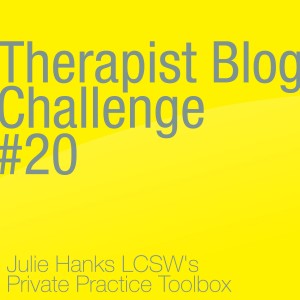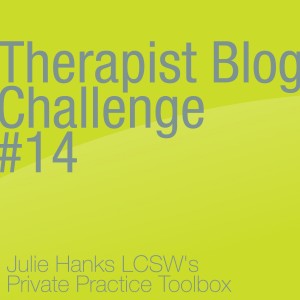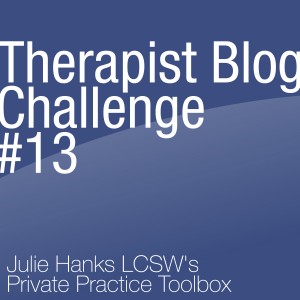 Therapist Blog Challenge #20 deals with the sometimes misunderstood topic of the mental challenges that athletes may experience.
Therapist Blog Challenge #20 deals with the sometimes misunderstood topic of the mental challenges that athletes may experience.
[Headline] Come up with a headline to give your readers an idea of what is to come. Here are a few examples:
Athletes' Unique Struggles With Mental Illness
Why Athletes Are Not Immune to Mental Health Challenges
Depression and Anxiety in Athletic Competitors
[Strong Intro] Write an introductory paragraph to explain more the topic and lay the scene for your main points. You may write your own or use the following:
Athletes are the envy of many in our society. Whether they're professionals, college players, or even high schoolers who excel in sports, it's not uncommon to desire their physical strength, attractive appearance, and mental grit. But what some may not understand is that athletes are just as vulnerable to mental health problems as the rest of the population. In fact, they often face unique struggles concerning their psychological well-being. According to some estimates, as many as 1 in 5 athletes experiences some form of a mood disorder. Here are 4 common reasons why athletes may struggle with mental illness:
[Scanable Content] Break up your content to make it more digestible and easy to read. Under each point, flesh out your idea by elaborating on your thoughts.
Athletes Often Tie Their Self-Worth To Their Performance
Athletes may experience feelings of worthlessness or extreme disappointment if they lose a game or match or otherwise do not perform at the level they desire. As losing (and even failing) is an inherent part of sports, this can occur quite frequently and therefore take an emotional toll that may leave these individuals prone to situational depression.
Frequent Injuries
Depending on the specific sport of event, some athletes may get hurt quite regularly. Head injuries (particularly concussions) sometimes seen with football players can lead to depression. Also, injuries that sideline athletes can cause them to feel incomplete or incompetent, which may further trouble them emotionally; if sports is what an individual excels at, he/she may feel like there is nothing else without them.
Associate Mental Illness With Weakness
As athletics emphasizes strength, having an "off-day" or being otherwise psychologically low may come off as weakness. Coaches and players may exacerbate this idea, and athletes can feel even worse about themselves if they are experiencing extreme sadness, anxiety, or other uncomfortable emotions resulting from a mental illness. There is already enough societal stigma concerning this topic, and this may even be more so in the world of athletics.
High Stress and Pressure
Everyone experiences the stress of everyday life, but that felt during an athletic event is even more intense. As an athlete's paycheck (and pride) depends on their performance, the stress and anxiety can sometimes prove too much and create a heavy psychological burden.
[Strong ending paragraph]
Wrap up your post by summarizing your main points to conclude and then possibly offering a further idea or two for readers to investigate on their own. Here's an example:
The nature of sports and competitiveness presents unique challenges for athletes. Thankfully, we can raise awareness of this issue in the hopes or reaching more individuals who may need professional help. Visit the International Society for Sports Psychiatry (ISSP) for more information.
Additional reminders about the 2015 blog challenge
- Write and post your blog article in the next 2 weeks. If you miss the deadline or you read this article months later, that’s OK too. Post a link for this blog challenge in the comment section of this blog post.
- Read, comment, and share other therapist’s articles.
- Tweet your post using hashtag #therapistblog and tag @julie_hanks so I can retweet it.
- Pin it on the challenge Pinterest Board. I’ve invited everyone who posted a comment on the initial blog challenge post as collaborators so you can pin onto the group board.
- Spread the word and invite mental health colleagues to join the challenge. Articles can be added anytime throughout the year.
- Write no more than 600 words, make it easy to read, use a conversational tone, and gear your articles toward your ideal client (not other professionals).
- The goal of a professional blog is to provide value to your website visitors, help them get to know your professional perspective, increase traffic to your private practice website, and build your practice.
Join my Private Practice Toolbox Facebook group and connect with 3200 therapists around the globe in 2 simple steps: 1) Click request to join the group and 2) Fill out this brief questionnaire before you’ll be added to the group.Get practice tips and blog updates in your inbox.
Get 52 FREE Blog Topics and prompts when you sign up for the PPT Newsletter (that's a years worth of weekly blog posts!)




 If you got an email today from a local news station asking to interview you as an expert on camera about one of your specialty areas for a news story, how would you respond? Surprisingly, many therapists let the opportunity to speak on camera for a large audience pass them by because of their own anxieties and insecurities about being on camera.
Landing interviews on local news and talk shows allows thousands of people "get to know you," hear about your areas of expertise, and become aware of your private practice.
If you got an email today from a local news station asking to interview you as an expert on camera about one of your specialty areas for a news story, how would you respond? Surprisingly, many therapists let the opportunity to speak on camera for a large audience pass them by because of their own anxieties and insecurities about being on camera.
Landing interviews on local news and talk shows allows thousands of people "get to know you," hear about your areas of expertise, and become aware of your private practice.
As healers, we genuinely like to do our work. Guiding clients through the therapy process and seeing them make progress is why we do what we do. But if you're in private practice, you know there's a lot going on in the back end and that it's crucial to run an efficient and organized business.